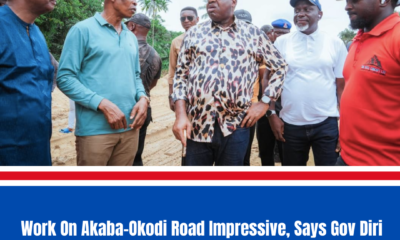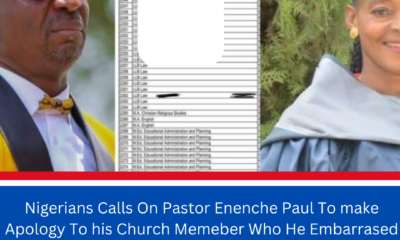Business
Shell forcing us to sign oil spill report – Bayelsa community

YENAGOA— INDIGENES of Aghoro, a coastal settlement along Ramos River in Ekeremor Local Government Area, Bayelsa State, have raised the alarm over the alleged intimidation of its community leaders involved in the investigation of an oil spill that occurred in the area.
However, the Joint Task Force, JTF, in the Niger Delta and Shell Petroleum Development Company, SPDC, yesterday, denied allegations of coercing leadership of Aghoro 1 community to sign the report.
A disagreement in the areas impacted by an oil leak on the Trans Ramos Pipeline within Shell’s oilfield at Aghoro communities in Bayelsa State had stalled release of Joint Investigation Visit, JIV, report on the spill incident.
It was gathered that the leak, which occurred on May 17, 2018 discharged 1,114 barrels of crude oil into the environment and polluted the Ramos River, farmlands and surroundings.
According to the draft JIV report, the 1,114 barrels of crude impacted a total land area of 113.3 hectares in Aghoro 1 while the community claimed that the impacted area was 1825 hectares.
The community leaders who participated in the JIV to determine the cause of the spill subsequently declined to sign the JIV report.
The refusal was due to wide disparity between the impacted areas claimed by SPDC and the community.
Mr Victor Akamu, Chairman, Community Development Committee of Aghoro 1 alleged that SPDC in connivance with the JTF resorted to force and intimidation.
Akamu said, yesterday, that JTF summoned the community leadership to Yenagoa on August 23 to force them to sign the JIV report to no avail.
He said the team from Aghoro were labelled pipeline vandals and were profiled into the database of the security agency.
“We were taken to a room where detailed profiles of us were taken including our finger prints, biometric details and our photographs. We were temporarily held for almost three hours profiling before we were eventually asked to go. I wanted to ask if it was part of JTF’s job to force a community to sign a JIV report?
“Shell should stop using JTF to intimidate our community. For the past 20 years, there has been no case of pipeline vandalism. This leakage was due to a ruptured pipeline caused by corrosion, yet they called us vandals. It is unacceptable,” Akamu said.
Reacting to the allegation of resorting to coercion, Mr Bamidele Odugbesan, Media Relations Manager, SPDC denied use of force to compel its host communities to sign the JIV Report.
“Yes, there are issues with the JIV report, the representative of Aghoro 1 community did not agree with a portion of the JIV report but we did not used force, SPDC does not coerce parties to sign JIV Reports,” Odugbesan said.
Rear Admiral Apochi Suleiman, Commander of the JTF dismissed allegations of intimidation, adding that the military waded into the crisis to encourage both parties to adopt dialogue to resolve their differences to avert breach of peace.
“We conduct our duties in compliance to our rules of engagement. We invited the parties to mediate and encourage them to dialogue and use the established channels of resolving conflicts.
“I told them to resolve their differences on the negotiating table so that the operation is not disrupted, our mandate is to safeguard oil facilities and we do not want the disagreement to degenerate further.
“We got reports that some persons were disrupting ongoing repairs of the ruptured pipelines and that was why some people were profiled, I was emphatic that we cannot tolerate anyone taking the law into his hands,” Suleiman said.
-

 News6 days ago
News6 days agoEFCC slams Edu, Farouq, Shehu, says N32.7bn, $445,000 recovered from humanitarian ministry
-

 Politics5 days ago
Politics5 days agoWork On Akaba-Okodi Road Impressive, Says Gov Diri
-

 Crime5 days ago
Crime5 days agoOyo State Police Mentions Names Of Who Invaded Oyo Sate Secretariat
-

 News5 days ago
News5 days agoNigerians Calls On Pastor Enenche Paul To make Apology To his Church Memeber Who He Embarrased While Giving Testimony
-

 Entertainment6 days ago
Entertainment6 days agoJunior Pope: ‘I Blame Myself For Shooting In Asaba’, Adanma Luke Laments
-

 News6 days ago
News6 days agoREWARD: Police Sets to Award Deserving Officers for Exemplary Performance
-

 News5 days ago
News5 days agoEdo State Government Demolishes Security Post at Shaibu’s Residence
-

 News4 days ago
News4 days agoOkuama: Gov Diri Urges Igbomotoru Residents To Return Home




















